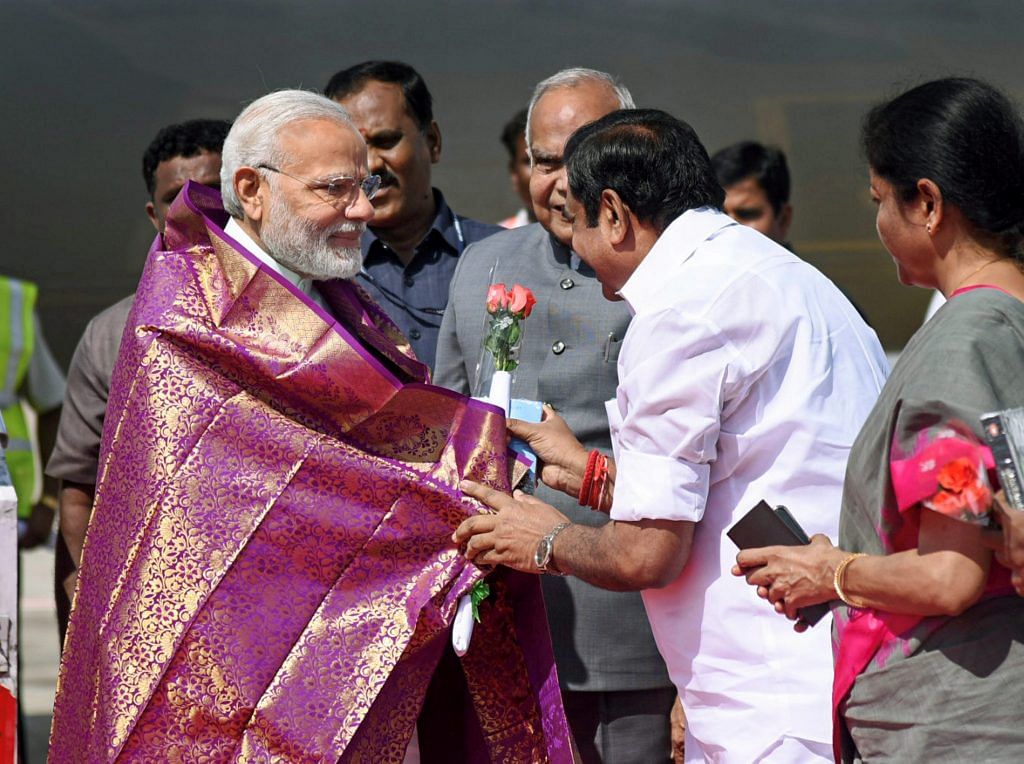The crux of the issue is that the Tamil renaissance and Dravidian movements resented that Tamils’ life had started imbibing Vedic ideas.
On 23 August 2011, months after J. Jayalalithaa was elected for her third term as chief minister, her government passed a resolution in the Tamil Nadu assembly to change the ‘Tamil New Year’ to 14 April. It coincides with the first day of the Tamil month ‘Chithirai’, and many other communities across India celebrate their new year on the same date.
Jayalalithaa had stated then that the Tamil New Year was wrongly being celebrated on 14 January – the first day of the Tamil month ‘Thai’ – as legislated by the preceding Dravida Munnetra Kazhagam (DMK) government in 2008.
Jayalalithaa overturned many DMK projects. But, the change of the new year date was significant. The debate for when the Tamil New Year should be celebrated goes into the core of the movement that laid the foundation for Dravidian political sub-nationalism and Tamil cultural renaissance.
In 1921, a group of Tamil scholars led by Maraimalai Adigal, one of the pioneers of the Tamil renaissance movement, declared that there was sufficient literary evidence in ancient Sangam-era texts such as Nattrinai, Ainkurunuru and Tholkappiayam to observe the new year at the start of the Tamil month of Thai. The Dravidian poet-writer Bharthidasan, through this song, admonished Tamils who were celebrating the new year in Chithirai month as those living in complete darkness.
“நித்திரையில் இருக்கும் தமிழா,
சித்திரை அல்ல உனக்குத் தமிழ்ப் புத்தாண்டு.”
The crux of the issue is that the Tamil renaissance and Dravidian movements resented that Tamils’ life had started imbibing Vedic ideas and the Tamil language had begun loaning Sanskrit words. The rise of non-Brahmin scholars like Maraimalai Adigal coinciding with that of Dravidian political stalwarts like Periyar EV Ramasamy created impetus to shear Tamil of external influences completely. The basis for the Chithirai new year was the 60-year cycle that was mentioned in the Vedas.
For instance, this new year is ‘Vilambi’ while the previous one was called ‘Heyvilambi’. Each of these years, ‘samvatsara’, with Sanskritic names is derived from a myth involving Lord Krishna and sage Narada, who is transformed into a woman and gives birth to 60 sons. Each son is then given the reins to rule the world for one year, and that year is derived from the name of the son.
The Tamil reformists found this myth too hard to swallow and decided to come up with a more rational basis for their calendar. The birth of Tamil saint-poet Thiruvalluvar was estimated to be in 31 BC and that was adopted as the official start of the Tamil calendar. The DMK-led government had officially notified this to be the first Tamil calendar year in 1972.
Successive AIADMK governments have not altered the Thiruvalluvar year calculation and the same is being followed to date.
However, there is debate among Tamils – depending on which side of the political fence you stand – as to whether they must go with Thai or Chithirai for the new year.
Prime Minister Narendra Modi into this debate during his visit to Chennai a couple of days back. During his speech at the DefExpo, Modi wished Tamils a happy new year. By doing so, he has once again revealed how little he understands the complexities of Tamil Nadu and its deeply reformist socio-political legacy.
Thanks to the new archaeological evidences unravelled in Keezhadi, Alagankulam, Kodumanal and the perception of the antiquity of Tamil language validated with the help of advanced linguistic tools, there is a growing sentiment of Tamil neo-renaissance and Dravidian resurgence. In this context, one can expect the debate around the Thai new year vs the Chithirai new year to be renewed again.
Manuraj Shunmugasundram is an Advocate and Spokesperson, DMK.
